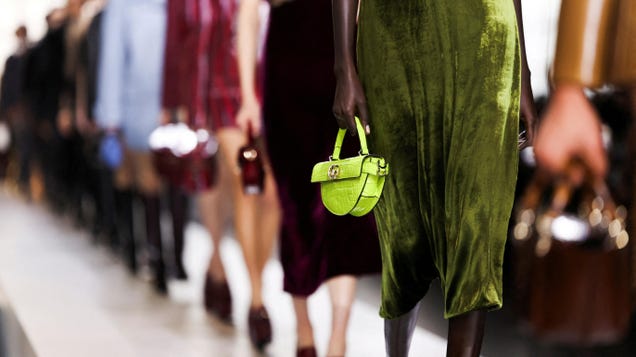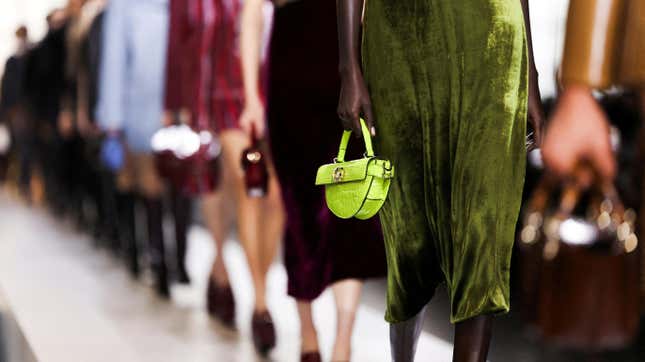Gucci sales in China fell sharply, making nearly $8 billion in market cap disappear


French investors woke up to a nasty surprise Wednesday morning. Luxury conglomerate Kering, which owns big-name fashion labels like Gucci, Saint Laurent, and Balenciaga, told them not to be surprised if its next financial update is uglier than expected.
Is it too late to invest in Nvidia? | Smart Investing
“In a first half that Kering expected to be challenging, current trends lead the Group to estimate that its consolidated revenue in the first quarter of 2024 should decline by approximately 10% on a comparable basis, from last year’s first quarter,” the company said in a statement.
The slowdown was most pronounced at Gucci, which makes up half the luxury group’s revenues. Sales for that brand are trending 20% lower year-over-year. Gucci sales in its Asia-Pacific market — meaning China primarily, since Japan is broken out elsewhere — were called out specifically, though a hard number was not provided. Kering will give a broader view into its finances next month.
Kering stock dipped by as much as 15% during Wednesday trading, erasing the equivalent of nearly $8 billion in value from the company’s market cap.
Missing Chinese buyers
In its most recent annual report (pdf), Kering warned that its China sales were struggling to regain their place as the fashion-world growth engine that they once were. After China ended its so-called zero-covid policy that sharply restricted movement and trade within the country in hopes of limiting covid-19 infections, economic observers had been hoping that on the other side would be a torrent of pent-up consumer demand. That hasn’t been the case. Not just domestically, but in the global financial capitals like New York, Paris, and Tokyo, where wealthy Chinese made their presence known at various luxury boutiques.
“Performance is nonetheless affected by weaker local demand and lower numbers of tourists, whose contribution stabilized due to a high base for comparison and the absence of any large-scale rebound in Chinese customers,” Kering said. “The recovery in China was also weaker than expected.



